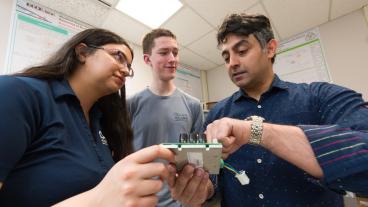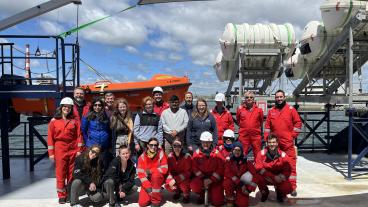Payne Institute for Public Policy releases first annual State of Critical Minerals Report
Report provides comprehensive review of growing demand for critical minerals
The Payne Institute for Public Policy at Colorado School of Mines released today its first annual State of Critical Minerals Report on the growing demand for critical minerals and their impact on energy transitions, communities, markets, national security and geopolitics.
The energy transition—and increased demand for electric cars, solar panels and other low-carbon technologies—is reliant on critical minerals. Many of these minerals, however, are mined and processed in adversarial nations or countries with low environmental, labor and human rights standards. In fact, of the 50 minerals identified on the U.S. Geological Survey Critical Minerals List, the U.S. is 100 percent reliant on imports for 12 and more than 50 percent dependent for 31.
“The world is waking up to the reality that global clean energy goals, as well as national security imperatives, require critical minerals and mining,” said Morgan Bazilian, director of the Payne Institute for Public Policy. “Meeting that demand will require innovative solutions to complex issues ranging from community engagement and sustainable mining to workforce and geopolitics.”
The first annual State of Critical Minerals Report brings together multi-disciplinary experts from across Colorado School of Mines to provide a comprehensive review of the social, economic and policy implications of the race to secure a reliable, socially responsible and economically viable supply of critical minerals.
The report’s release follows a two-day Critical Minerals Symposium hosted by the Payne Institute that brought over 200 participants from industry, academia and government together at Mines to discuss geopolitics, supply chains, sustainable mining, community engagement, permitting, investments, markets and more.
The report and symposium are part of a broader effort by Mines to connect the world class technical and scientific expertise of the university with global conversations related to energy issues.
“Colorado School of Mines is an authoritative and trusted source to communities, industry, and government on the full range of critical minerals issues,” said Walter G. Copan, Vice President for Research and Technology Transfer. “Mines addresses all aspects of the global mining and materials lifecycle – from initial community engagement, exploration, mineral economics, and mining – to minerals processing, product manufacturing and recycling. No other university in the world offers this breadth of expertise.”
Access the report at https://payneinstitute.mines.edu/payne-institute-the-state-of-critical-minerals-report-2023/
Media Contact: Emilie Rusch, erusch@mines.edu




